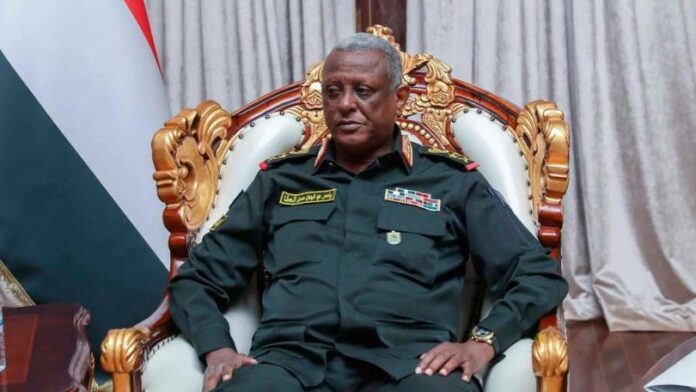In highly contentious remarks, Yasser al-Atta, assistant commander-in-chief of the Sudanese army and member of the Sovereignty Council, claimed that what he called the international community’s silence over alleged crimes by the Rapid Support Forces (RSF) in Sudan had been “bought with Emirati money.” He directly accused UAE President Mohammed bin Zayed of supporting a plan that, in his words, aims to “purge Sudan of African tribes.”
Speaking at a press event in Omdurman, al-Atta alleged that the UAE president is waging what he described as a “racist war” against the Sudanese people through support for the RSF, which he accused of committing massacres and widespread abuses across the country over the past two and a half years, most recently in the city of El Fasher. He added that a source in Dubai had warned him a year before the war broke out that Mohammed bin Zayed was referring to RSF commander Mohamed Hamdan Dagalo (Hemetti) as the “Prince of Sudan,” which al-Atta interpreted as a sign of ambitions that go beyond traditional political backing.
Al-Atta further claimed that what he called the “Emirati project” includes a broad program of forced displacement and ethnic cleansing. According to his account, this allegedly involves pushing the population of northern Sudan and Nubian communities into Egypt, while driving the Nuba of the south and other groups from South Kordofan and Blue Nile states into South Sudan. He said this purported plan represents a direct threat to Sudan’s social fabric and unity. Al-Atta also asserted that Sudanese intelligence possesses information indicating that the UAE has established a command structure in Abu Dhabi to manage logistics, media operations and weapons supplies for the RSF.
Darfur Governor Repeats Accusations Against the UAE
Darfur regional governor Minni Arko Minawi likewise accused the United Arab Emirates and other unnamed international actors of providing support to the RSF in order to engineer demographic change in Darfur. His remarks came on Wednesday as he addressed a gathering of displaced people who had fled El Fasher and taken refuge in the town of al-Dabba in Northern State.
On 26 October, the RSF seized control of El Fasher, the last stronghold of central government authority in the Darfur region. Shortly after taking the historic regional capital, RSF forces were accused of extensive abuses against civilians, including killings, looting, rape and forced displacement, drawing strong condemnation from regional and international actors.
The Sudanese government, for its part, accuses the UAE of providing military, logistical and manpower support to the RSF, including through the recruitment of thousands of foreign fighters to join its ranks against the Sudanese army allegations the UAE has repeatedly rejected as unfounded in various international forums.
“Demographic Change” and the Suffering of the Displaced
Addressing the displaced in al-Dabba, Minawi said that “the United Arab Emirates and other international actors are involved in supporting the RSF and other militias in order to pursue demographic change and alter the identity of the people of Darfur.” He insisted that “your identity can only be changed by God; no one can strip it from you,” pledging that the displaced would be returned to their homes as soon as the fighting stops and security conditions improve.
Minawi described the suffering of those displaced from Darfur as “a profound humanitarian tragedy,” stressing that civilians who fled the fighting do not deserve life in camps but were forced into them by what he called injustice, failures by the international community and the backing some states provide to militias. He said the displaced are “our sons, daughters and mothers,” noting that government authorities at all levels, including Sovereignty Council chairman and army chief Abdel Fattah al-Burhan, had visited them and offered support and solidarity.
Allegations of Ongoing Genocide and International Inaction
Minawi asserted that Darfur is witnessing a “continuing genocide,” arguing that the crimes committed in 2003 are being repeated today by largely the same actors. He named the Janjaweed, the RSF and foreign mercenaries allegedly brought from West African countries as responsible for ongoing atrocities. He added that the financial and logistical backing received by these groups continues to flow from what he described as “the same states” that supported them in the past.
He sharply criticized the stance of the United Nations and the wider international community, accusing international institutions of failing to meet their moral and legal obligations toward Sudan, which he described as a member state that “pays in money and blood and deserves protection.” Al-Dabba has taken in thousands of people fleeing El Fasher, many of whom arrived in extremely harsh humanitarian conditions after suffering abuses they say were committed by RSF forces during their escape from the city


